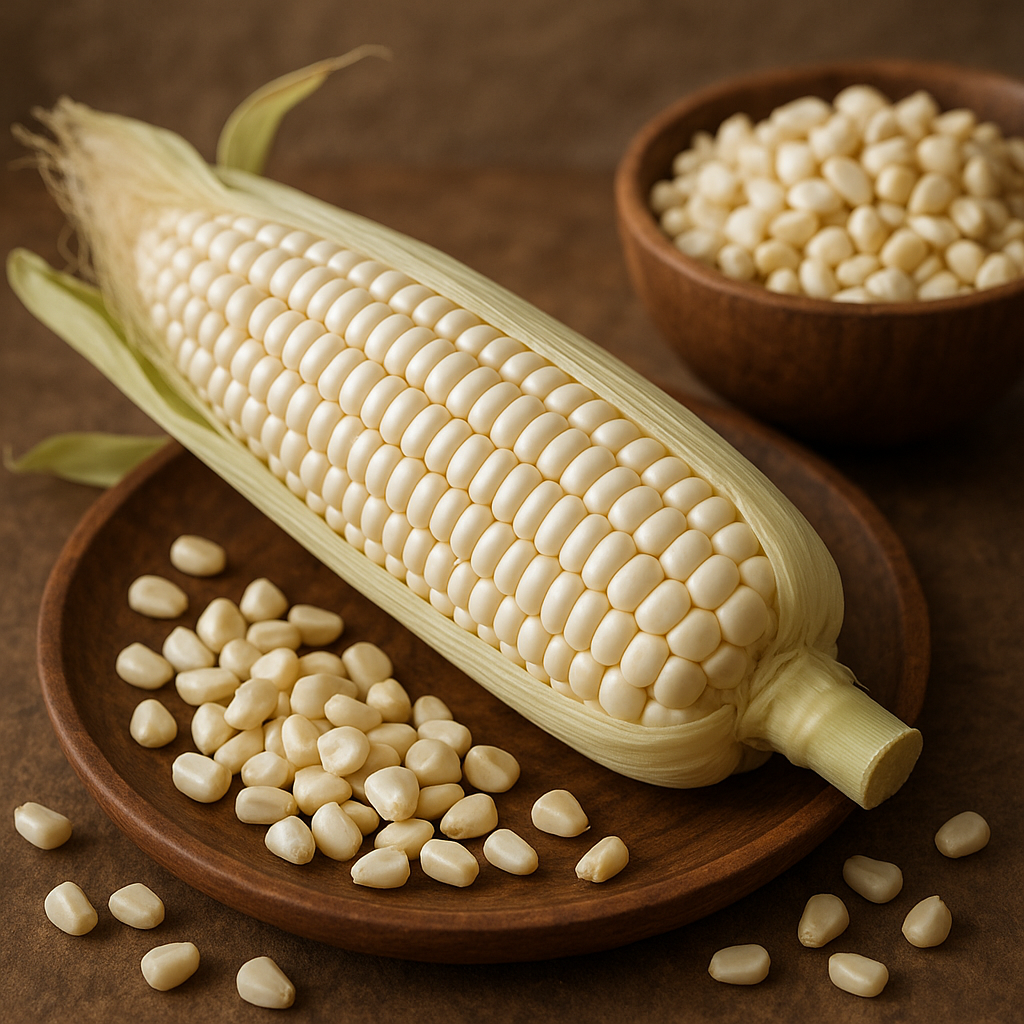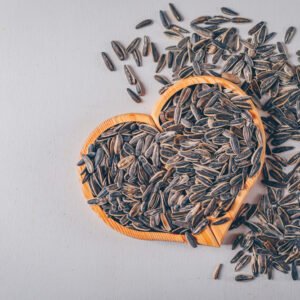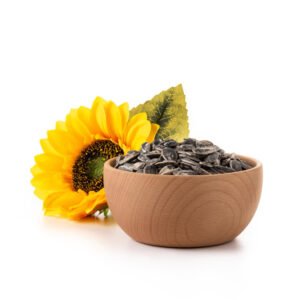Did you know that white maize, one of humanity’s oldest cultivated grains, could be the nutritional powerhouse your diet needs? While yellow corn often steals the spotlight, white maize deserves equal attention for its impressive array of health benefits and versatile culinary applications. As global awareness about sustainable nutrition grows, understanding whether white maize is good for your health becomes increasingly important.
White maize, scientifically known as Zea mays, represents one of the most significant cereal grains worldwide. This ancient grain has sustained civilizations for over 9,000 years and continues to play a crucial role in modern nutrition. Whether you’re exploring gluten-free alternatives or seeking nutrient-dense whole grains, white maize offers compelling advantages that make it worth considering for your dietary needs.
What Makes White Maize Special?
White maize differs from its colorful counterparts primarily in its lack of carotenoid pigments, which gives it its distinctive pale appearance. However, this absence of color doesn’t translate to a lack of nutrition. The grain maintains the same fundamental structure as other maize varieties, consisting of the endosperm, germ, and bran, each contributing unique nutritional components.
The versatility of white maize extends beyond basic nutrition. It serves as a foundation for numerous food products, from traditional tortillas and polenta to modern gluten-free flour alternatives. Understanding the white maize benefits can help you make informed decisions about incorporating this grain into your meal planning.
Comprehensive White Maize Benefits for Health
Rich Source of Essential Nutrients
White maize provides an impressive nutritional profile that supports overall health. A single cup serving provides 31% of the daily value for vitamin B7 (biotin), which plays a crucial role in energy metabolism and nervous system function. This makes white maize particularly valuable for individuals seeking to optimize their metabolic health.
The grain contains substantial amounts of fiber, supporting digestive wellness and contributing to feelings of satiety. Corn has a high source of fibre which keeps the digestive system healthy, making it an excellent choice for individuals focused on maintaining healthy digestion and regular bowel movements.
Supports Heart Health and Blood Sugar Management
One of the most significant white maize benefits lies in its impact on cardiovascular health. Regular consumption of whole grain corn lowers the risk of developing chronic diseases such as cardiovascular disease, type 2 diabetes, and obesity. This protective effect stems from the grain’s fiber content and various bioactive compounds that work together to support metabolic health.
White maize demonstrates favorable glycemic properties, making it suitable for blood sugar management. Corn has lots of health benefits, including insoluble fiber, making it a low glycemic index food. This characteristic means white maize provides sustained energy without causing rapid spikes in blood glucose levels.
Gluten-Free Alternative for Special Diets
For individuals with celiac disease or gluten sensitivity, white maize represents a safe and nutritious alternative to wheat-based products. One of the most significant advantages of corn is that it does not contain gluten, making it an essential ingredient for those following gluten-free diets without compromising nutritional value.
This gluten-free nature extends the versatility of white maize in food preparation, allowing for creative culinary applications while maintaining dietary restrictions. From bread alternatives to pasta substitutes, white maize opens up numerous possibilities for varied and enjoyable meals.
Essential Vitamins and Minerals in White Maize
B-Vitamin Complex Support
White maize contains several B-vitamins that support energy production and neurological function. Beyond biotin, it provides thiamine, niacin, and folate, all essential for optimal metabolic processes. These vitamins work synergistically to support cellular energy production and maintain healthy nervous system function.
The B-vitamin content in white maize makes it particularly beneficial for individuals with increased energy demands, such as athletes or those recovering from illness. Regular consumption can contribute to sustained energy levels throughout the day.
Mineral Content for Optimal Health
Corn contains many B vitamins, as well as essential minerals, including zinc, magnesium, copper, iron and manganese. These minerals play crucial roles in immune function, bone health, and enzymatic processes throughout the body.
Magnesium supports muscle and nerve function while contributing to bone strength. Iron facilitates oxygen transport throughout the body, making white maize particularly valuable for individuals at risk of iron deficiency. Zinc supports immune system function and wound healing, while copper and manganese contribute to antioxidant enzyme systems.
White Maize in Modern Agriculture and Sustainability
The cultivation of white maize aligns with sustainable agricultural practices, particularly when sourced from reputable suppliers who prioritize environmental stewardship. CMS Industries, a leading agricultural products manufacturer in India, emphasizes sustainable farming methods while providing high-quality grains and agricultural inputs to farmers worldwide.
Sustainable white maize production involves practices that protect soil health, conserve water resources, and minimize environmental impact. When choosing white maize products, consider suppliers who demonstrate commitment to both quality and environmental responsibility.
Incorporating White Maize into Your Diet
Versatile Culinary Applications
White maize adapts to numerous cooking methods and flavor profiles. Ground into flour, it creates excellent alternatives to wheat flour for baking and cooking. Whole kernels can be added to soups, stews, and salads for added texture and nutrition.
Traditional preparations include polenta, tortillas, and various porridge-style dishes that showcase the grain’s natural flavor and nutritional benefits. Modern applications extend to smoothie additions, breakfast cereals, and even fermented products that enhance digestibility.
Portion Considerations and Balance
While exploring whether white maize is good for your health, remember that portion control remains important. Like all grains, white maize should be consumed as part of a balanced diet that includes vegetables, proteins, and healthy fats.
A typical serving size ranges from one-quarter to one-half cup of cooked white maize, depending on individual caloric needs and activity levels. This amount provides significant nutritional benefits while maintaining reasonable caloric intake.
Potential Considerations and Individual Responses
Blood Sugar Sensitivity
Although white maize has a relatively low glycemic index, individuals with diabetes should monitor their blood sugar response when incorporating new grains into their diet. People with diabetes need to be mindful of portion sizes when consuming starchy vegetables and grains.
Working with healthcare providers can help determine appropriate serving sizes and timing for white maize consumption within an overall diabetes management plan.
Processing and Preparation Methods
The health benefits of white maize can vary significantly based on processing methods. Whole grain forms retain more nutrients compared to highly processed products. Choose minimally processed white maize products whenever possible to maximize nutritional benefits.
Traditional preparation methods, such as nixtamalization (alkali processing), can actually enhance certain nutrients and improve protein quality. This ancient technique demonstrates how proper preparation can optimize the nutritional value of white maize.
The Role of Quality Sourcing
The nutritional quality of white maize depends significantly on growing conditions, harvesting practices, and storage methods. Reputable suppliers like CMS Industries ensure that their agricultural products meet high standards for quality and nutritional integrity.
When selecting white maize products, consider factors such as organic certification, sustainable farming practices, and proper storage conditions. These elements contribute to both nutritional value and overall food safety.
Future Perspectives on White Maize Nutrition
Ongoing research continues to reveal new aspects of white maize benefits, particularly regarding its bioactive compounds and their health implications. Scientists are investigating the grain’s potential role in preventing various chronic diseases and supporting healthy aging.
The development of biofortified varieties aims to enhance the nutritional content of white maize, potentially increasing its value as a functional food. These advances may further establish white maize as a cornerstone of healthy, sustainable diets worldwide.
Conclusion
So, is white maize good for you? The evidence strongly suggests that white maize deserves a place in a healthy, balanced diet. Its impressive nutritional profile, including essential B-vitamins, minerals, and fiber, combined with its gluten-free nature and sustainable production potential, makes it a valuable addition to modern nutrition.
The white maize benefits extend beyond basic nutrition to include support for heart health, blood sugar management, and digestive wellness. When sourced from quality suppliers who prioritize sustainable practices, white maize represents both a nutritious choice and an environmentally conscious decision.
Consider incorporating white maize into your meal planning to experience these benefits firsthand. Whether you’re managing dietary restrictions, seeking nutrient-dense whole grains, or simply exploring new flavors, white maize offers versatility and nutrition that can enhance your overall health and well-being.
Ready to explore premium white maize and other agricultural products? Contact CMS Industries today to learn more about our sustainable, high-quality grains and agricultural solutions that support both your health and environmental stewardship.
Frequently Asked Questions
Q1: Is white maize good for weight management?
White maize can support weight management due to its fiber content and low glycemic index, which promote satiety and stable blood sugar levels, helping control appetite and reduce overeating when consumed in appropriate portions.
Q2: What are the main white maize benefits compared to yellow corn?
White maize benefits include similar nutritional value to yellow corn but with less carotenoid content. Both varieties provide fiber, B-vitamins, and minerals, making them equally valuable for health, with the choice often based on personal preference.
Q3: Can people with diabetes safely consume white maize?
Yes, white maize can be included in diabetic diets due to its low glycemic index and fiber content. However, portion control is essential, and individuals should monitor blood sugar response and consult healthcare providers.
Q4: How does white maize support digestive health?
White maize benefits digestive health through its high fiber content, which promotes regular bowel movements, supports beneficial gut bacteria, and helps maintain healthy cholesterol levels while providing sustained energy without digestive discomfort.
Q5: Is white maize good for gluten-free diets?
Absolutely! White maize is naturally gluten-free, making it an excellent grain choice for people with celiac disease or gluten sensitivity. It provides essential nutrients while serving as a versatile ingredient in gluten-free cooking.





